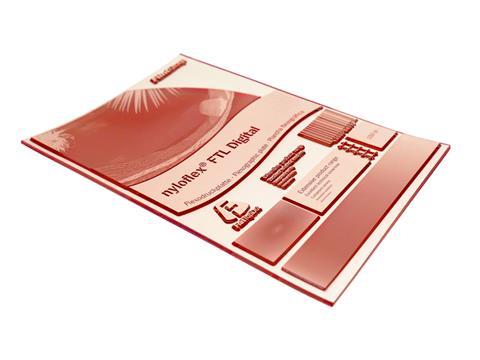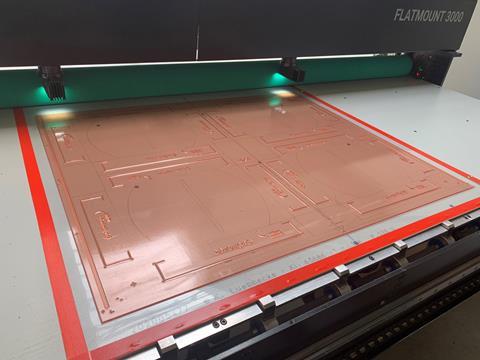
In this edition of our Innovation Spotlight, printing specialist Flint Group reports on how a productive partnership was essential to the successful development of its new nyloflex® FTL printing plate.
Achieving high-quality printing in corrugated postprint has always been a great challenge, due to inferior lower-cost board grades. Not only half-tone images, but good solid ink transfer is important where an even ink laydown is an important quality criterion. The main influencing factors are the quality of the liner, the type of flute, and the relief geometry on the flexographic printing plate.
Flint Group always aims to develop new products as closely as possible to market needs and in cooperation with industry partners, in order to address customer demands in a targeted manner by developing a solution together.
During the development of the nyloflex® FTL Digital, Flint Group found two very qualified and committed companies in Chespa and Smurfit Kappa for the evaluation of the nyloflex® FTL, which accompanied the test phase of the product development up to the market launch.
Real test conditions for repetitiveness and quality of the printing result
Chespa and Smurfit Kappa were ideal partners in the product development of nyloflex® FTL and made valuable contributions to the product launch through extensive testing under production conditions.
For Flint Group, it was important to test the printing plate in a real production environment to ensure that the development was as close to the market's needs as technically possible and to validate the product performance in the development phase. The test series was printed at Smurfit Kappa's Lübbecke site, which offered suitable conditions for the application fields of the nyloflex® FTL.

The test panels printed at Smurfit Kappa were all produced at Chespa Leipzig, where the data preparation was also handled. First, test forms were printed to evaluate the limits of the printing plate. Production jobs were then implemented in order to test not only the good printing performance of the first tests but also the quality over the entire print run with several jobs and designs. "The most important challenges in meeting our customers' needs are the repeatability and quality of the print result," explains Lutz Klemm, managing director at Chespa.
nyloflex® FTL Digital is an inherent flat top dot printing plate for corrugated postprint as well as for paper and board applications in combination with water-based inks. Amongst others, it is suitable for printing on sustainable substrates with a higher proportion of recycled fibers.
The result is a significant reduction in fluting
The nyloflex® FTL has inspired and convinced Smurfit Kappa from the first print onwards. Thanks to better ink transfer and improved ink laydown, Smurfit Kappa was able to improve the print quality, especially in the solid coverage. The ability to reduce the impression setting minimises the fluting effect and thus achieves excellent printing results on uncoated testliner or kraftliner in combination with B-flute.
Less deformation of the corrugated board makes it easier for the printer to meet the specified crush tolerances of the end customer in order to guarantee optimum packaging stability.
Alternatively, it is possible to use printing substrates with lower grammages to save packaging material. "With Flint Group we have a qualified and innovative partner for printing plates on our side. Both the Flint Group and the Chespa Group thrive on close exchange, cooperation and the great trust of their customers. Our central task is to develop ourselves further, to push ahead with innovations and the latest production technologies and to offer customized products and services tailored to the customer's specific requirements," says Mr. Klemm.
This content was sponsored by Flint Group.
















